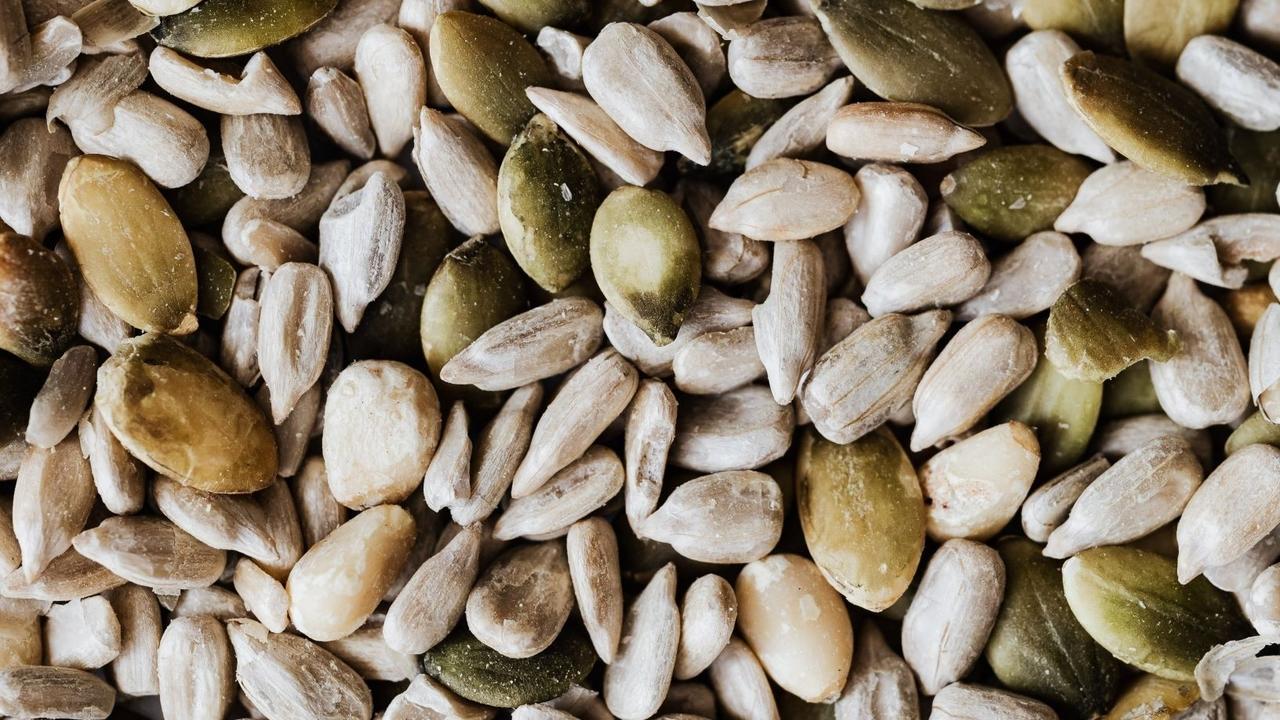Seed Cycling, Part One: What is Seed Cycling and How Does It Affect Hormones?

There’s a reason why the practice of seed cycling is trending: its powerful effects and ease on hormonal imbalance and its ease of use makes it invaluable to women who are struggling with hormones.
Though it might sound like new knowledge (and for most people, it is), the concept is actually quite ancient and commonly used in alternative medicine. Here’s what you should know about seed cycling in this first part of my three-part series.
What is Seed Cycling?
Seed cycling uses four different types of seeds (flax, pumpkin, sesame, and sunflower) to help your body regulate your hormones during different stages of your monthly cycle. The goal of seed cycling is to regulate your estrogen levels during the first half of your cycle and progesterone levels during the second half of your cycle.
In the first two weeks (Days 1-14 of your menstrual cycle), experts suggest eating one tablespoon each of ground flax seeds and pumpkin seeds. This first half of the phase is where follicles in the ovary begin to mature. During ovulation, your follicle releases an egg and you begin the second half of your cycle.
During this second half, experts recommend eating one tablespoon each of sunflower seeds and sesame seeds each day until you get your period. Once you reach Day 1, you restart the seed cycle.
Seeds’ Impact on Women’s Hormones
Why flax, pumpkin, sesame, and sunflower seeds (in this order)? Before we get into specifics, let’s look at what your hormones do during a normal cycle:
Throughout the first half, your body produces estrogen, as well as follicle-stimulating hormone (FSH) and luteinizing hormone (LH) in the days right before ovulation. Going into the second phase, estrogen production drops, then increases along with progesterone in just the right balance to support conception. If conception doesn’t occur, then both hormones will drop again prior to your period.
However, when you have a hormone imbalance, estrogen and progesterone production may be higher or lower than they need to be. Medical conditions like hyperthyroidism, PCOS, menopause, and others may also be associated with these imbalances.
The four seeds I mentioned above may help to regulate these imbalances. Flax seeds contain phytoestrogens, which act like estrogen in the body which can help if you aren’t naturally making enough. They also contain lignans, which also help to manage excess estrogen. The zinc content in pumpkin seeds is also believed to encourage progesterone production for the second half of the cycle.
During the second half, sesame seeds’ polyphenol content is supposed to prevent estrogen levels from increasing too much. And last but not least, sunflower seeds’ Vitamin E content may help improve progesterone levels which is super important during the second phase of the cycle for both reproduction and hormonal balance.
Coming Up in Seed Cycling Part Two
We’ve only scratched the surface in this blog post, and I’m excited to share more with you on seed cycling and its benefits for hormonal imbalances.
Now that we’ve covered the basics, we’re going to dive deeper into the specifics of seed cycling in Part Two of this series. Stay tuned!
I want to hear from you!
- Was this post useful? Have you been dealing with any menstrual and/or reproductive issues? Tell me below what you’re dealing with and how you are fixing it. [email protected]
- Please share this post on social media or with any one who might need this information. Join me on Instagram for all the latest info on periods, hormones, and women's health.
- Want to be the first to know when I release a new blog post? Sign up below!
Medical Disclaimer
Information in this post and on this web site is provided for informational purposes only. The information is a result of practice experience and research by the author. This information is not intended as a substitute for the advice provided by your physician or other healthcare professional or any information contained on or in any product label or packaging. Do not use the information on this web site for diagnosing or treating a health problem or disease, or prescribing medication or other treatment. Information and statements regarding dietary supplements have not been evaluated by the Food and Drug Administration and are not intended to diagnose, treat, cure, or prevent any disease. Always speak with your physician or other healthcare professional before taking any medication or nutritional, herbal or homeopathic supplement, or using any treatment for a health problem.
